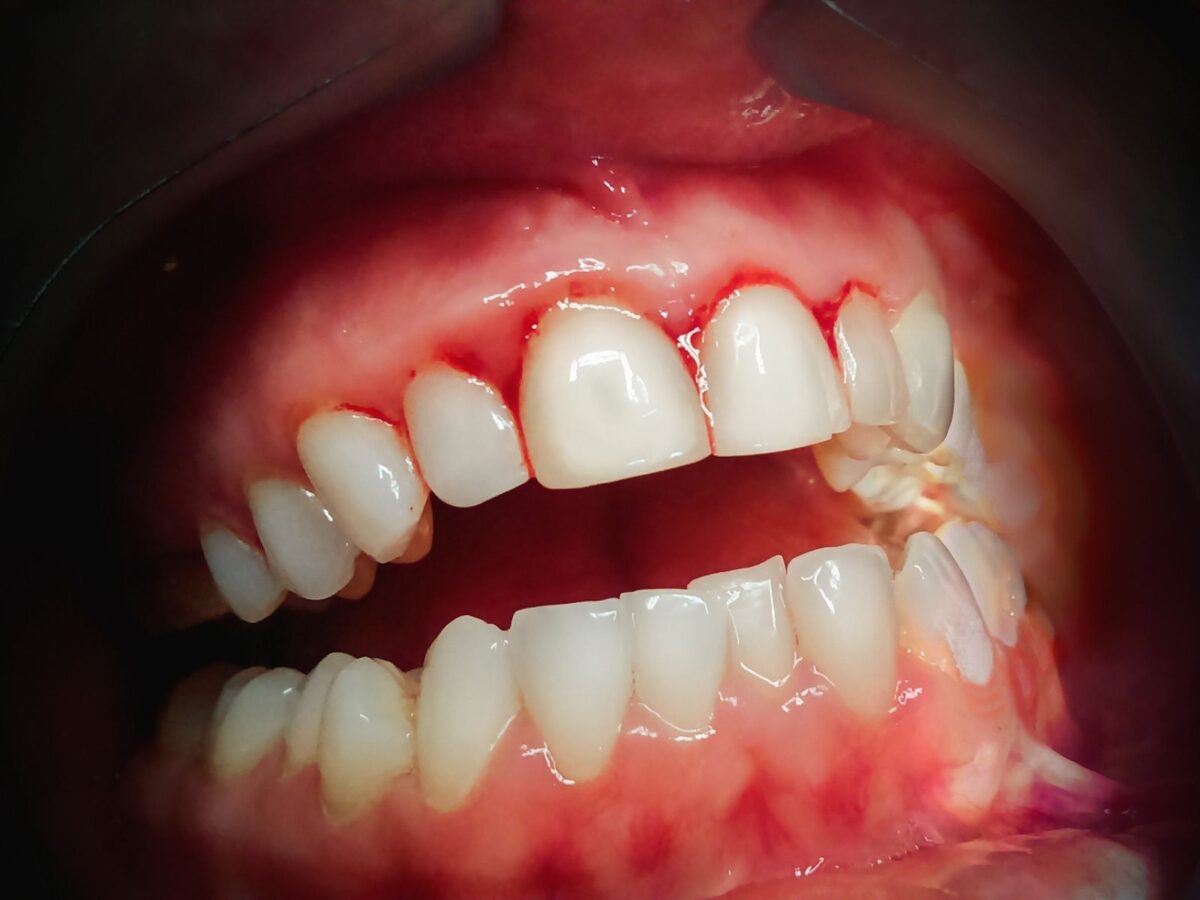Blog
Dental hygiene tips for healthy teeth & gums

Common Bleeding Gum Causes & How You Can Prevent Them
Do you have bleeding gums? Are you worried about its causes? Or ways to prevent it?
Bleeding gums is a common oral problem for most people. However, you must not take bleeding gums lightly. It indicates poor oral hygiene in most cases. You must find the root cause of gums bleeding. It is also a common sign of early stages of gingivitis. This is why it is better to consult a dentist before.
This article is a guide that will help you understand the causes of bleeding gums. You can learn how to prevent it. This article also informs you how to treat it using home remedies. You will also learn some dentist recommendations with this article. You can consult dental experts at Callalen Dentist for detailed information.
Bleeding Gums Causes Explained
Bleeding gums are a common sign of gum disease. It can also indicate various other problems with your oral health. Let us explore these causes to understand the bleeding gums a little better.
Gingivitis
Early-stage gum condition is a common cause. Plaque buildup results in gum inflammation and irritation. You need to visit the dentist for effective steps to reverse its effects.
Periodontitis
If your gum problem advances, it can also cause gum bleeding. Plaque turns into tartar and can irritate your gums.
Poor Oral Hygiene
Lack of oral hygiene also causes gum bleeding. People who ignore proper removal of plaque might have plaque deposits. With time, this plaque solidifies and requires professional help for removal.
Many other causes can lead to gum bleed. These include
- Hormonal changes
- Vitamin deficiencies
- Pregnancy
- Medications
- Medical conditions like diabetes
- Vitamin deficiencies
You need to improve your diet for better oral health. You should also discuss your medications with your dentist. Your dentist can recommend an effective solution based on your lifestyle.
Plaque and tartar buildup can be removed with a professional oral cleaning session. One must learn the correct way to brush. It is essential to protect tooth enamel and gums.
Bleeding Gums Preventive Measures
Precaution is essential to avoid gum problems. Here are some precautionary steps you can explore.
Dental Hygiene
You must brush your teeth properly. You should use a soft-bristled toothbrush and floss daily.
Brushing Technique
Brushing with force can also damage the tooth enamel and lead to bleeding. It also causes gum recession. You can switch to a monthly professional cleaning session if you need to clean your teeth better. This can maintain your teeth hygiene.
Dental Exams
You must schedule regular dental checkups every few months. Professional cleaning sessions can remove plaque and tartar buildup properly.
Balanced Diet
It is essential to consume the required vitamins and minerals. You especially need Vitamin C and K. A balanced diet can also help you calm down gum inflammation. This can help you fight infection and stop possible bleeding of gums.
Quit Smoking
Smoking and tobacco can irritate gums. You must avoid these and other food choices that can damage your gums while inflamed.
How To Treat Bleeding Gums?
Home Remedies:
Use Clove Oil and tea tree oil.
You can use clove and tea tree oil to soothe bleeding gums. They have medicinal properties. They can be used as home remedies. This home remedy calms down gums inflammation.
Rinse With Salt Water
Rinsing your mouth after every meal using salt water is an effective way to reduce food particle buildup. It helps one remove particles from hard-to-reach surfaces. It also provides a clean mouth. This can help remove bad breath and many other complications of poor hygiene. This will decrease the chances of bleeding gums and soothe the inflamed gums that might bleed.
Dentist Recommendations:
You must follow the steps to stop bleeding gums. Your dentists might recommend the following steps to avoid such conditions:
- Improve Dental Hygiene
You must use a soft-bristled brush twice a day for proper oral cleanings. You must floss your teeth regularly. The lesser plaque buildup, the better oral health you will have. - Use an Antiseptic Mouthwash
An antiseptic mouthwash is better for your gums. It will help you reduce bacteria and inflammation. It will also promote better gum health. - Visit a Dentist
Your dentist can help you identify gum diseases early. A professional cleaning session will remove plaque and tartar buildup. It will also improve your overall oral hygiene. - Gently Massage Your Gums
You can use your toothbrush or your finger to massage gums gently. It promotes better gum health. - Use a Better Toothpaste
You should consider using toothpaste designed for gum health. It is often labeled for sensitive gums or periodontal care.
Food Choices
Food and your lifestyle also affect your oral health. You must eat food rich in vitamin C and vitamin K. Here are some ingredients to improve your oral health.
Foods rich in vitamin C are:
- citrus fruits and juices
- broccoli
- strawberries
- tomatoes
- potatoes
- bell peppers
Foods rich in vitamin K are:
- watercress
- kale
- spinach
- Swiss chard
- lettuce
- mustard greens
- soybeans
- canola oil
- olive oil
Conclusion
Your oral health is your responsibility. Most people either avoid dental visits or depend too much on them. You must take care of your oral health by yourself. You can consult your dentist if you find any discomfort or bleeding while you brush. Mostly, lack of oral care and hygiene causes bleeding gums.
You should ask your dentist to teach you how to brush. Proper brushing will ensure your oral health is well-maintained. You can visit Calallen Dentist TX to learn some tips to avoid bleeding gums. These efforts are essential to reduce the risk of gum disease. With effective prevention measures, you can maintain oral hygiene. It will also improve your overall lifestyle.


